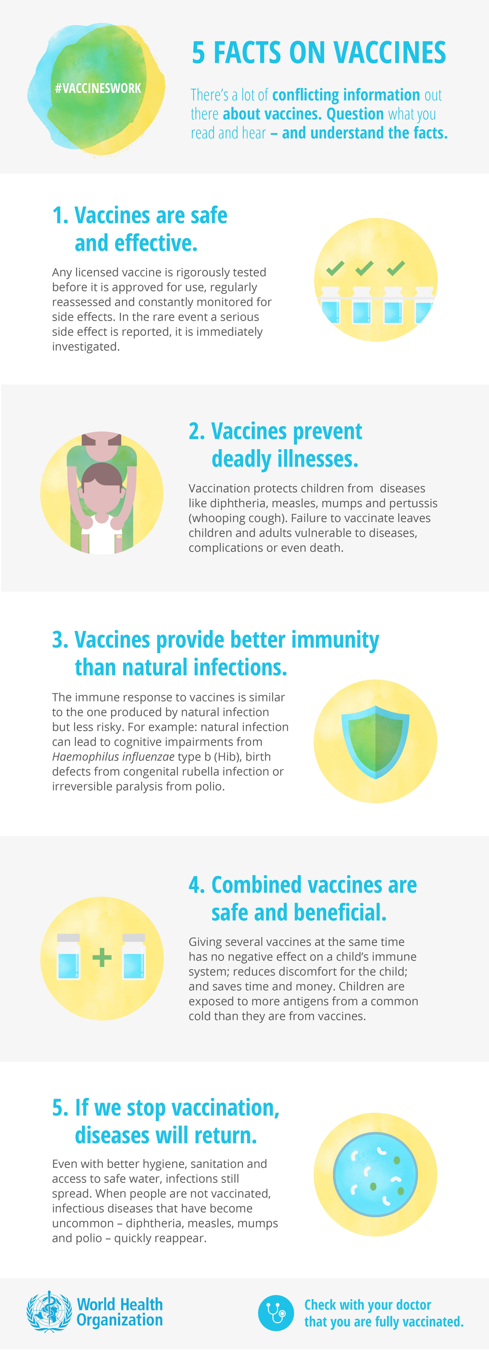Vaccines: Myths, Facts, and What to Know
Today, vaccines have become one of the most inexpensive and effective means of disease control and health promotion. The World Health Organization (WHO) estimates that up to 3 million deaths per year are prevented due to vaccinations, and this number could increase by 1.5 million with improved vaccination rates globally. Measles mortality across the world has decreased by 84%, and polio has been almost completely eradicated. Vaccines even contribute to defense against the growing epidemic of antimicrobial resistance by helping reduce the incidence of infections that need to be treated by antibiotics. Vaccines are an essential component of public health improvement efforts. Although great progress has been made with the development and administration of vaccines, a growing trend of vaccine hesitancy is putting further advancement at risk.
Vaccine hesitancy, as defined by the WHO, is the “delay in acceptance, or refusal of, vaccines despite availability of vaccination services.” This problem is multifaceted and depends greatly on context. There are many individual as well as systematic level influences that come into play with vaccine hesitancy, with three main drivers being complacency, convenience, and confidence. It is important to note that being unvaccinated because of barriers to knowledge and access does not fall under the category of hesitancy; this is a separate issue that needs its own targeted efforts. Since vaccine hesitancy is such a complex problem, there are no straightforward solutions. Strategies to reduce vaccine hesitancy should be tailored to specific groups and collaborative between disciplines. Individual dialogue between various health information providers and patients is one of the most important ways of reducing vaccine hesitancy.
Unfortunately, there are many myths about vaccines that are becoming increasingly prevalent. Vaccines are a safe and effective way of preventing disease and keeping people healthy. It is important to correct any misinformation that people may have. There is no scientific evidence supporting the ideas that vaccines cause autism, that they are unsafe, or that they are ineffective. Below is an infographic from the World Health Organization that provides the truth behind the science of vaccines.
https://www.who.int/features/factfiles/immunization/en/
https://www.who.int/immunization/programmes_systems/vaccine_hesitancy/en/
https://www.aaaai.org/conditions-and-treatments/library/allergy-library/vaccine-myth-fact
https://www.who.int/campaigns/immunization-week/2017/infographic-5-facts.jpg?ua=1
https://respectfulinsolence.com/2017/07/26/surprise-relatively-small-decreases-in-vaccine-uptake-can-lead-to-big-increases-in-vaccine-preventable-disease/ (Only used for header photo)

